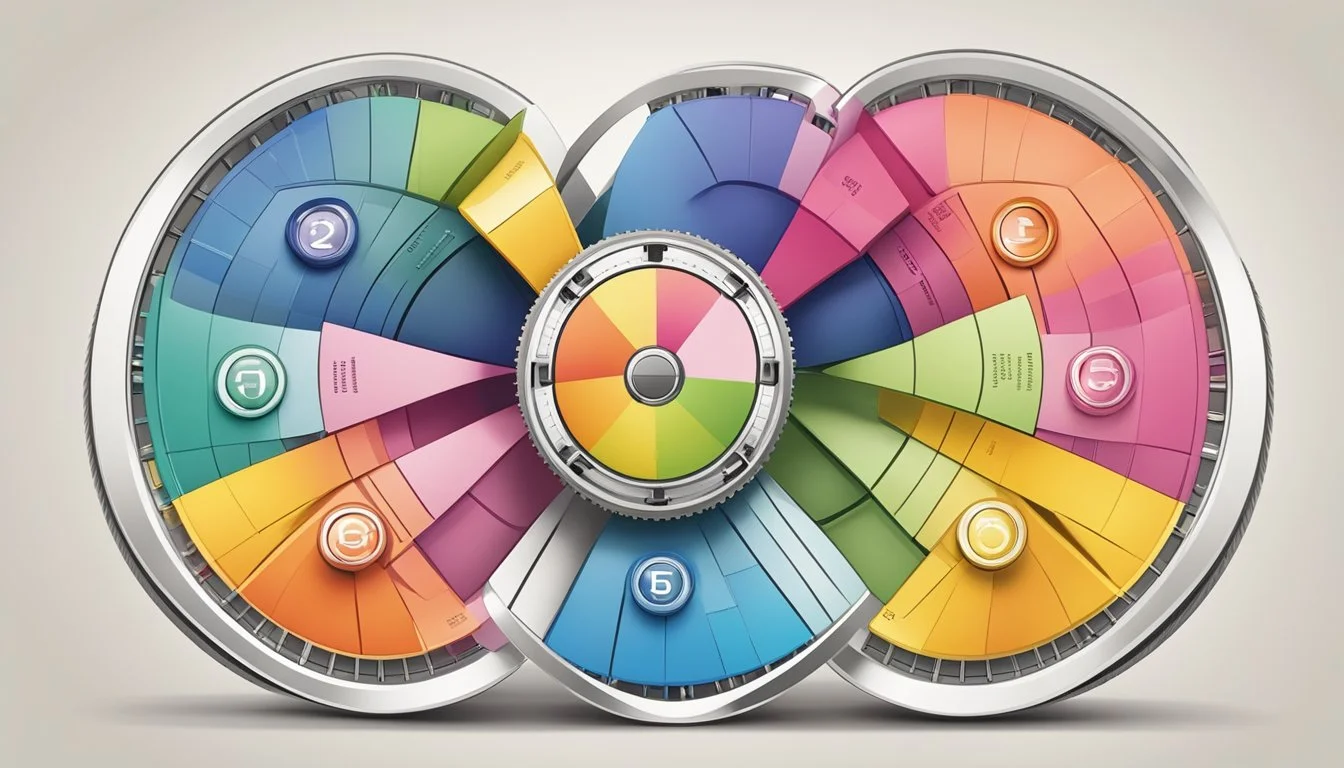Discover Your Element: The 5 Elements Personality Types Unveiled
The concept of five elements personality types originates from ancient Chinese philosophy and medicine. This system categorizes individuals based on the elements of Water, Wood, Fire, Earth, and Metal, each associated with distinct characteristics and traits. The five elements theory provides a framework for understanding human behavior, emotions, and interactions, offering insights into personal strengths and potential areas for growth.
While everyone possesses aspects of all five elements, most people have a dominant element that shapes their personality. This approach to personality typing has gained popularity as a tool for self-discovery, relationship building, and personal development. By exploring the qualities associated with each element, individuals can gain a deeper understanding of themselves and others, leading to improved communication and interpersonal dynamics.
1) Empathetic Connector
The Empathetic Connector personality type aligns with the Earth element in the Five Elements system. These individuals possess a natural ability to form deep emotional connections with others.
Empathetic Connectors are known for their compassionate nature and strong listening skills. They often serve as the glue that holds groups together, fostering harmony and understanding among people.
These individuals tend to have a nurturing disposition, making them excellent caregivers and supportive friends. Their empathy allows them to easily sense and respond to the emotional needs of those around them.
Empathetic Connectors typically have a calm and grounded presence. They prefer stable environments and may struggle with rapid change or uncertainty.
In professional settings, Empathetic Connectors excel in roles that involve counseling, teaching, or customer service. Their ability to create a safe and comfortable atmosphere makes them valuable team members.
While their caring nature is a strength, Empathetic Connectors may sometimes neglect their own needs in favor of others. Learning to establish boundaries is crucial for their personal well-being.
2) Analytical Observer
The Analytical Observer, often associated with Enneagram Type 5, is characterized by a deep curiosity and thirst for knowledge. These individuals approach the world with a keen eye for detail and a desire to understand complex systems.
Analytical Observers excel at dissecting problems and finding innovative solutions. They possess a natural ability to spot patterns and connections that others might miss. Their intellectual prowess allows them to tackle challenging issues with ease.
Privacy and autonomy are highly valued by Analytical Observers. They tend to create personal spaces where they can retreat and process information without interruption. This need for solitude helps them recharge and maintain their mental clarity.
These individuals often have a wide range of interests and expertise. They enjoy delving into niche subjects and becoming specialists in their chosen fields. Their analytical skills make them valuable assets in research, technology, and scientific endeavors.
While Analytical Observers are adept at understanding theoretical concepts, they may struggle with emotional expression. They typically prefer to approach situations from a logical standpoint rather than relying on feelings or intuition.
In social settings, Analytical Observers may appear reserved or detached. This stems from their tendency to observe and analyze rather than actively participate. Despite this, they can form deep connections with those who share their intellectual interests.
3) Creative Visionary
Creative Visionaries possess a unique blend of imagination and foresight. These individuals excel at generating innovative ideas and envisioning future possibilities. They often exhibit traits associated with both the Wood and Fire elements in traditional Five Element theory.
Creative Visionaries are known for their ability to think outside the box and challenge conventional wisdom. They have a natural talent for spotting trends and identifying opportunities that others might overlook. This makes them valuable assets in fields that require innovation and forward-thinking.
These personalities are typically energetic and passionate about their ideas. They can inspire others with their enthusiasm and ability to paint vivid pictures of potential outcomes. Creative Visionaries often thrive in leadership roles where they can guide teams towards ambitious goals.
While their strengths lie in ideation and big-picture thinking, Creative Visionaries may sometimes struggle with implementation. They benefit from collaborating with detail-oriented individuals who can help turn their visions into reality. Developing skills in project management and follow-through can enhance their effectiveness.
Creative Visionaries play a crucial role in driving progress and innovation across various industries. Their ability to envision and articulate new possibilities makes them catalysts for change and growth in organizations and society at large.
4) Practical Organizer
The Practical Organizer personality type is characterized by a strong sense of structure and efficiency. These individuals thrive on creating order in their environment and daily routines. They possess a natural talent for sorting, categorizing, and arranging items in a logical manner.
Practical Organizers excel at developing systems that streamline processes and improve productivity. They have a keen eye for detail and can quickly identify areas that need improvement. Their methodical approach to tasks often results in well-organized spaces and smooth-running operations.
These personalities tend to be reliable and dependable. They take their commitments seriously and strive to meet deadlines with precision. Practical Organizers often find satisfaction in completing tasks and checking items off their to-do lists.
In the workplace, Practical Organizers are valuable team members. They bring clarity to complex projects and can effectively manage resources. Their ability to create and maintain order makes them well-suited for roles in project management, logistics, or administrative positions.
While they excel at organization, Practical Organizers may sometimes struggle with flexibility. They might find it challenging to adapt to sudden changes or improvise when faced with unexpected situations. Developing adaptability can help them balance their innate organizational skills with a more flexible approach.
5) Charismatic Leader
Charismatic leaders possess a magnetic personality that draws others to them. They inspire and motivate through their vision, passion, and ability to connect emotionally with followers.
These leaders excel at communication, articulating their ideas clearly and persuasively. They often use storytelling and vivid imagery to convey their message and create a shared sense of purpose.
Charismatic leaders display confidence and optimism, even in challenging situations. Their unwavering belief in their vision instills confidence in others and helps maintain morale during difficult times.
They are skilled at reading and responding to the emotions of others. This emotional intelligence allows them to adapt their approach and build strong relationships with diverse individuals and groups.
Charismatic leaders often challenge the status quo and propose innovative solutions. They are willing to take calculated risks and lead by example, demonstrating commitment to their ideals through personal actions.
While charisma can be a powerful leadership tool, it must be balanced with ethical behavior and genuine concern for followers' well-being to be truly effective in the long term.
Understanding the 5 Elements Personality Types
The 5 Elements personality system draws from ancient Chinese philosophy and medicine. It categorizes individuals into five distinct types based on natural elements, offering insights into character traits and behaviors.
Origin and Historical Context
The 5 Elements theory originated in ancient China over 2,000 years ago. Chinese scholars theorized that the universe comprises five fundamental forces: water, wood, fire, earth, and metal. This concept extended beyond nature, influencing traditional medicine and personality understanding.
Acupuncturists have long used this system to comprehend a person's nature and symptoms. The elements correspond to seasonal cycles, with wood representing spring, fire symbolizing summer, metal embodying autumn, water signifying winter, and earth representing transitions between seasons.
This holistic approach to personality typing predates modern systems like Myers-Briggs, offering a unique perspective on human behavior and traits.
Core Principles and Philosophy
The 5 Elements system posits that individuals possess innate rhythms aligning with one dominant element. These elemental associations influence personality traits, strengths, and potential challenges.
Wood types are often strategic and visionary. Fire personalities tend to be passionate and expressive. Earth individuals are typically nurturing and stable. Metal types are known for precision and organization. Water personalities are often introspective and adaptable.
Each element interacts with others in specific ways, creating a dynamic system of balance and influence. This interconnectedness reflects the philosophy's emphasis on harmony and holistic understanding of human nature.
The system aims to foster self-awareness and improve interpersonal relationships by recognizing and respecting diverse personality types.
The Impact of 5 Elements on Personal Growth
Understanding the 5 elements personality types can significantly influence personal development and interpersonal dynamics. This knowledge provides insights into individual strengths, weaknesses, and tendencies.
Enhancing Self-Awareness
The 5 elements framework offers a unique lens for self-reflection. By identifying their dominant element, individuals gain clarity on their natural inclinations and behavioral patterns.
Wood types may recognize their drive for growth and tendency towards impatience. Fire personalities might become more aware of their enthusiasm and potential for impulsivity.
Earth types could acknowledge their nurturing nature and tendency to worry. Metal individuals might better understand their perfectionism and need for structure.
Water types may gain insight into their adaptability and potential for introspection.
This self-awareness allows for targeted personal growth strategies. Individuals can leverage their elemental strengths while addressing areas for improvement.
Improving Interpersonal Relationships
Knowledge of the 5 elements can enhance communication and empathy in relationships. Understanding different elemental types helps individuals tailor their approach to others.
For example, a Wood type might learn to soften their directness when interacting with a sensitive Earth type. A Fire personality could practice active listening to connect better with a reserved Water type.
This awareness fosters greater patience and acceptance of diverse personalities. It reduces conflicts arising from misunderstandings or clashing communication styles.
In professional settings, teams can leverage this knowledge to improve collaboration. Managers can assign tasks based on elemental strengths, optimizing team performance.
Couples can use this framework to navigate differences and build stronger connections. Recognizing complementary elements can lead to more harmonious partnerships.






